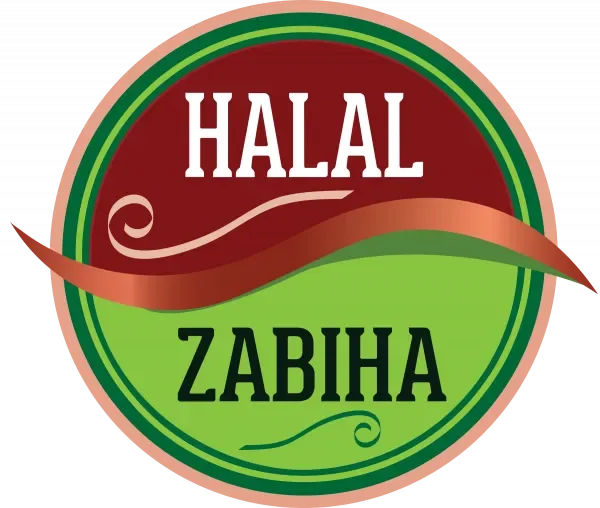
About HFSAA
Who are we?
HFSAA was established by traditionally trained Islamic scholars who were concerned about the state of Halal in the USA. They performed research on the Halal models implemented in various countries, conducted awareness programs for the local US communities, and developed a solution that prioritizes traditional religious values that steer clear of contentious practices. Check the next section to see if you recognize any of our team members!
What do we do?
We provide Halal certification for everything in the meat supply chain, foods, cosmetics, chemicals, and more. There is a plethora of differences of opinion amongst Islamic scholars when it comes to Halal. We’re implementing a higher standard to ensure that any Muslim is able to consume our certified products regardless of what their personal stance may be on such issues. We are proud to be able to provide a higher standard of Halal!
Why HFSAA?
Standards, Scholars, and Service. Our Islamic scholars aren’t a separate team that’s rarely consulted or honorary names added to our website to garner legitimacy. At HFSAA, Islamic scholars participate at every level, from the board to the day to day inspections, ensuring we’re staying true to our commitment to the community to enforce a high standard of Halal. We strive to provide excellent service to businesses seeking Halal certification, reflecting our faith based values.
Meet the Team
Our Halal Standards
Muslim Slaughterer
The individual performing the slaughter must be a Muslim.
Practices in the industry that do not conform to HFSAA standards:
Non-Muslims slaughtering
The Muslim individual blessing animals as a non-Muslim slaughters.
Reversible Stunning
Stunning is highly discouraged, but where necessary the stunning method must be reversible (cannot cause harm that leads to death).
Practices in the industry that do not conform to HFSAA standards:
Captive bolt
Controlled Atmospheric Stunning
Irreversible electric bath
Gun shot
Hand Slaughter
The animal must slaughtered by the hand of the Muslim slaughterer, and not by machine (mechanical) means.
Practices in the industry that do not conform to HFSAA standards:
Machine/Mechanical slaughter
Horizontal Cut
The Muslim slaughterer will use a sharp knife to administer a horizontal incision to the throat of the animal severing the trachea, esophagus, and the carotid arteries.
Practices in the industry that do not conform to HFSAA standards:
Vertical cut/beef sticking of cattle
Cutting fewer than 3 of the blood vessels
Modified vertical cut
Tasmiya on each animal
The Muslim slaughterer must recite the name of God on every individual animal, accompanied with proper intention
Practices in the industry that do not conform to HFSAA standards:
Playback of a recording of the blessing
The blessing inscribed on the equipment
Reciting the blessing just once upon start
Halal Suitable Ingredients
All non-meat ingredients must be free of most alcoholic and animal byproducts (with the exception of milk, eggs, and few others)
General principles for ingredients that do not conform to HFSAA standards (not a comprehensive list):
Ingredients derived from animal sources (ex: cheese enzymes/rennet). Exceptions apply (ex: milk, honey, lanolin, etc.)
Ingredients that contain khamr alcohol (alcohol derived from dates, grapes, raisins, or alcoholic beverages)
The HFSAA Advantage
With HFSAA you’ll receive an unmatched level of expertise and attention. And since we’re not a for-profit organization, you’ll get some of the most competitive rates in the industry.
Registered 501(c)3 non-profit organization ✅
Founded, Supervised, and Operated by Islamic scholars, students, activists, and professionals. ✅
Halal standards accepted by all Muslims ✅
Same Day Responses ✅
Clear communication and understanding ✅
For-profit companies ❌
Operated by professionals with limited Islamic scholarly involvement in day to day activities ❌
Partial acceptance of Halal standards ❌
Delayed and limited responses ❌
Linguistic barriers or misinterpretations ❌
Our Research - Halal Models Around the World
Our team has visited over 15 US states, 7 countries, and 4 continents for the purpose of studying Halal organization models and regulatory practices being applied at every level of the supply chain. We’ve had the opportunity to learn from countless Halal experts, researchers, scholars, and inspection personnel on implementing Halal monitoring in the most optimal manner.
-
Over thirty five slaughterhouses and processing centers were visited in over fifteen states in the United States of America. Witnessing contentious practices such as vertical cut/beef sticking, mechanical slaughter, irreversible stunning (captive bolt, CAS, etc), non-Muslims slaughtering, cross contamination with pork, etc. Additionally many of these products are labeled “Zabiha Halal” a term with no set definition in the industry yet commonly used to mislead consumers into believing the product is adhering to a higher standard of Halal.
-
HFSAA met with local Halal certifiers NZIMM ( no longer active) and FIANZ and inspected twenty-five major slaughterhouses that are exporting to America.
-
On this 2 month long visit, HFSAA met with local Halal certifiers ICCV & SICHMA, and inspected eleven major slaughterhouses exporting to America.
-
During a three week long training, HFSAA gained valuable skills and insights from organizational and strategy sessions, which were conducted with international Halal experts from the South African National Halal Authority (SANHA), and the Muslim Jurists Council (MJC), the two oldest and most respected Halal certifying bodies in South Africa. As South Africa is probably the country with the most developed and advanced Halal production and certification infrastructure in the world, this was an invaluable experience, which gave HFSAA precious insights that few others in America posses. Along with strategy and organizational training, HFSAA benefitted from hands on and practical methods of inspection, visiting numerous slaughterhouses, industrial food processors and distribution centers.
-
While on this 2-week long visit, HFSAA got to meet with the Halal Monitoring Committee (HMC) of the United Kingdom. HMC is the most respected Halal certifying organization in the UK. HFSAA and HMC held multiple organizational and strategy meetings with national Halal experts and visited numerous industrial food processors and slaughterhouses for research purposes. The visit to the UK also allowed HFSAA to interact with a number of renowned scholars including Mufti Abdur Rahman ibn Yusuf, Mufti Muhammad ibn Adam al-Kawthari, and many others, to find sunnah-based solutions to modern industrial-scale Halal issues.



Facebook
Instagram
Twitter/X
WhatsApp
Facebook
Instagram
Twitter/X
WhatsApp
Facebook
Instagram
Twitter/X
WhatsApp
Facebook
Instagram
Twitter/X
WhatsApp
Facebook
Instagram
Twitter/X
WhatsApp
Facebook
Instagram
Twitter/X
WhatsApp
Follow Us on Social Media!